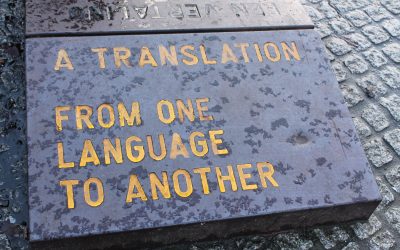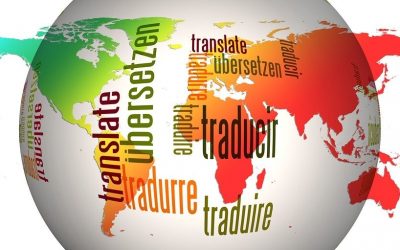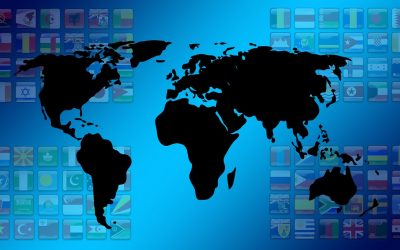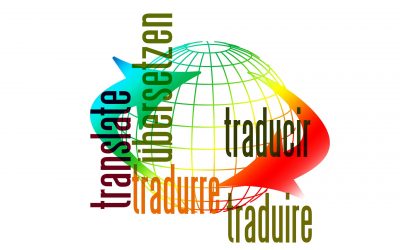Read our Translation Blog
Get the latest fun and facts from the language industry with our blog!
Need advice on website translation and localization?
Browse our ONLINE SHOP for ebooks on how to translate a website!
LingoStar’s Blog 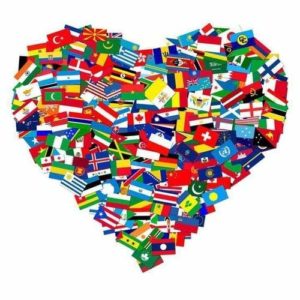
Welcome to LingoStar’s blog! On this page, you can find a lot of interesting and useful information about the translation industry. Explore topics on website translation and localization and how successful localization can influence your business to help your company grow and go global.
Language Blog Topics
On this blog, you can also learn about professional translators and interpreters, multilingual search engine optimization (SEO), the importance of socializing and networking and translators’ professional ethics. Quite often we write posts about the languages of the world, other cultures, and their traditions. Not only do translators convert texts from a source language to a target language, but they also help people communicate with each other, help establish international contacts, and are often prominent figures in the social, economic, and political life. Lastly, of course, we want you to have fun, so on our blog, you can find many posts that will entertain you and, hopefully, make you smile!
We hope you enjoy our blog and discover a lot of interesting things!
Japanese Influence: How Hawaii Made Japanese Culture Its Own
Japanese Culture in Hawaii Hawaii often brings to mind images of coconut trees, beaches, and tropical fruit. However, modern day Hawaii has a rich culture built upon the lives and traditions of the indigenous Hawaiian people, as well as the many immigrants who came to the islands as plantation workers during the early colonial period. One influential culture is Japanese culture. It is so ingrained in some parts of life that one might not even notice their Japanese origins unless explicitly pointed out. However, not only has Japanese culture influenced Hawaii, but Hawaii has made Japanese culture its own in a way. For instance, many Japanese-origin aspects of culture or life in Hawaii have evolved from their original Japanese counterparts. In addition, the general non-Japanese population also enjoys aspects of Japanese culture that have moved past ethnic lines and into the general lifestyle in Hawaii. The strength of Japanese influence depends on the island and even parts of island. Japanese Influence on Language and Culture Children often say jan ken pon when playing rock paper scissors – the Japanese version of the game. However, they often don’t know its Japanese origins and think of it as a string of syllables. Japanese popular culture like anime and manga are quite popular and widespread. Obon is a traditional Buddhist summer festival where people gather to dance and honour their ancestors. However, unlike in Japan, where the festival is held over a three-day period, Hawaii’s obon festivals run throughout the summer. Hawaii’s festivals are also less strictly religious. Many non-Japanese and non-Buddhist people go simply to browse the food stalls and enjoy the festival atmosphere. Japanese Influence on Food and Shopping There... read moreFrench language (France and worldwide): Clichés, Facts and More!
How many people speak the French language around the world? France has an estimated population of 67 million people and the official language is French. Over 80 million people speak French as a native language worldwide. If we include non-native speakers, this increases to about 220 million worldwide. French is an official language in 29 countries. This includes its DOM-TOMs (remaining overseas territories from the colonial era), which still have French as their mother tongue because they are still an official part of France. What are the most common clichés about the French? Talking about the French language often leads to stereotypes about the French. Here’s a small selection: “The French say “ooh là là” a lot” – well, it’s true, they do say it a fair bit but not as we use it in the English-speaking world. There’s the good “oh là là”, used to express admiration, there’s the bad “oh là là”, used to express annoyance, and there’s the really bad “Oh là là là là (là là)” – yes, it’s got to be at least four là’s! – for when you’re in a real pickle. It’s all in the intonation! Three little but powerful words! “French people are unruly and impolite” – this is a famous stereotype but this comes down to understanding cultural differences. The French are very “matter-of-fact” and “straight-to-the-point”. They don’t beat around the bush, and sometimes, this can come across as abrupt or brash but in actual fact, most of them are very well behaved and will treat you with respect. “French workers complain a lot and are always on strike” – trade... read moreArgentine Spanish and More: How Many Speakers?
How Many People Speak Argentine Spanish & the Spanish Language Around the World? Argentina has an estimated population of 45.2 million people and the official language is Spanish (Argentine). According to Instituto Cervantes, in 2019, over 483 million people speak Spanish as a native language worldwide. In addition, about 22 million people study Spanish worldwide as non-native speakers. What is Argentine Spanish related to? Here’s an interesting list of facts and myth busters about stereotypes related to Argentina’s culture: “Argentine people use the second personal, singular “you” form (“vos”) to address everybody.” Well, Argentine people use “vos” mainly in informal contexts, let’s say, with family and friends. However, when addressing a manager or a doctor, they would use the formal “you” form (“usted”) as it is more polite. “Argentine people say “che” all the time.” TRUE. They use the word “che” as an interjection, often to: emphasize something, get someone’s attention or address someone whose name they don’t know. As a matter of fact, the revolutionary Ernesto “Che” Guevara earned the nickname “el Che” because he frequently used this word. “Argentine people are always eating asado.” No matter how much Argentine people would like this to be true, they don’t eat asado (traditional Argentine barbecue) every day. However, it’s true that people eat asado regularly. An asado on a sunny Sunday is always a classic. “Argentine people drink mate all day long.” TRUE. “El mate” is widely drunk in Argentina. More importantly, apart from the drink itself, it’s about bonding and sharing with your loved ones. “All Argentine people know how to dance tango.” FALSE. Although tango is a... read moreThe French Community in British Columbia Continues To Grow
The French Community in British Columbia The French community in British Columbia continues to grow and diversify every year. British Columbia has the fourth largest Francophone community in Canada. According to Statistics Canada in 2016, French is the mother tongue of over 70,000 British Columbians. There are more than 300,000 residents of the province who speak French in addition to English or another language. Francophones have contributed to the economic growth, intellectual pursuits, and political and cultural development of British Columbia. Structures are in place to provide several services to Francophones living in the province or thinking of moving there. It is possible to study, work and stay informed in French, as well as to access social services and health care. Many organizations are working hard to expand the Francophone and Francophile presence in B.C. One is the British Columbia Francophone Federation, the official voice of the province’s Francophone community. Their mission is to represent the Francophone community in British Columbia while preserving their linguistic and cultural heritage. Infographic: The strong French presence in British Columbia The Francophone community in B.C. is not only growing but also changing the overall Canadian population. This infographic will show you some interesting facts about the Francophonie in British Columbia: PDF Download The need for French translation services French is not only the mother tongue of many Canadians, but an integral part of the Canadian identity. If you want to successfully expand your business into the Canadian market, you need to understand the country’s linguistic variations and adapt your business to the local look and feel. By working with a trusted translation agency that is familiar... read moreAccurate Translation: Why is it Crucial Every Time?
The significance of accurate translation English is one of the most prominent languages in the world. Many people ask why doesn’t everybody just speak English? Or how important is translation? The fact is that not everyone can speak English. More importantly, language is much more than communicating with words. It is also an expression of a country’s society, culture, and beliefs. Translation facilitates effective communication between people who speak different languages by spreading information, knowledge, ideas, or messages. Therefore, it is crucial to produce a genuine and accurate translation that correctly reflects the original text. When it comes to translation services, the quality and accuracy of translations are crucial. Quality language translation narrows the gap in communication. A good translation enables companies to reach a global audience by talking in a language that their clients can understand. Accurate translation is critical to all aspects of any industry field. It requires a double effort when it comes to medical, legal, or technical translations. If the official document is not translated accurately, it can cause catastrophic consequences such as loss of income and damage to an organization’s reputation. Medical translations require a high level of accuracy for all the medical terms, findings, recommendations, and instructions in the target document. Like medical translations, legal translations must also be completely error-free. Any small mistake in the translated copy can result in serious legal issues affecting the lives and freedom of people who use the document. How to produce a genuine and accurate translation Being able to translate accurately is an art and the translator is an artist. Besides following the rules of translation... read moreEnglish and Italian to French translation: Literature All Around the World
English and Italian to French translation Thousands of books are published every day globally. English and Italian to French translation allows for the sharing of literature all around the world. We may not all speak the same language but we may have read the same books. Thanks to literary translators, books can be shared to all corners of the globe. Cyril Laumonier has been doing this job for ten years. He completed a European master’s degree in specialized translation at ISIT in Paris. ISIT is a French intercultural school that offers various pathways of study including literary translation. During the last year of his master’s degree, he accepted to translate two children’s books from English and Italian to French. This is his daily experience as a literary translator from English and Italian to French. English and Italian to French translation on a daily basis According to Laumonier, you cannot learn this job simply through university studies. You have to train your entire life. You need to read and to be curious, and to always want to learn more. Push the limits of your knowledge and your universe. So, a typical day for him starts at home since he works from home. It allows him to manage his own work day. Depending on the deadlines, he tries to work between 6 and 8 hours a day. Always with dictionaries next to him. However, the high level of attention the job requires to perform well can be tiring. Indeed, compared to audiovisual translators, he does not use new technologies like automatic translation. Nearly everything occurs between him, the text, and his... read moreThe Italian language in Italy and worldwide: How many speakers?
How many people speak the Italian language all around the world? Italy has a total population of 60 million people and the official language is Italian. 61,860,418 people speak Italian as a native language. In addition, 16,957,243 people speak Italian worldwide as non-native speakers. What is the Italian language related to? Talking about the Italian language obviously takes you to stereotypes related to it. Let’s go over these together: “Italians are pizza and spaghetti eaters.” Yeah, that could be true. Italians eat pasta almost every day and pizza once a week, even if they are on a diet! “Italians talk with their hands.” It’s a scientific truth: everybody gesticulates to express themselves in a better way, but yes, let’s consider this stereotype true too. “Italians are loud.” No less than our Spanish, German and English neighbours! 😉 “Italians are always late.” It depends on the appointment. We’re hardly ever late for work. If it’s a meeting with friends, that’s another matter. “Italians drink espresso and cappuccino all day long.” INCORRECT. We meet for coffee to spend time with our loved ones. Cappuccino is only for breakfast, unlike other cultures. “Italians are disorganized.” Try telling that to my best friend. She is one of the most organized people I have ever known. And she managed to make me an organized person too! “Italians can’t speak English.” Of course, it’s not easy to get rid of our distinctive accent but that’s not true. At least, we try! 😊 Curious facts about the Italian language It derives from vernacular Latin (as opposed to ancient Latin). When Latin merged with the languages of... read moreWhy are French Translation Services so important in Canada?
LingoStar
read moreCOVID-19 Coronavirus Translation: Help with Multilingual Communications
COVID-19 and how LingoStar can help you with COVID-19 coronavirus translation First of all, we hope that you, your family and colleagues are safe and well during this global pandemic. As the coronavirus, also called COVID-19, keeps spreading in Canada, please refer to general information from the Canadian Government to ensure your safety. We want you to know that we are still working during this time, as many of our translators and editors traditionally work remotely from ‘home’. This is how we usually operate in the freelance translation world. Therefore, we already comply with the social distancing recommendations and minimize the infection risk among our employees and translators. We are available for any COVID-19 coronavirus translation requests. How can a translation company fight COVID-19? We understand that many businesses around the world need to update their clients, colleagues, employees, business partners, and so on. Our desire is not to profit from this crisis but help promote information. So, feel free to reach out to us with any translation needs related to the communication of COVID-19. Whether it is a translation or a voice-over, we’ll be happy to help spread your multilingual message in Spanish, French, Chinese, Italian, Korean, German, Farsi, and more. We have already been translating company memos and announcements for some of our clients in the last two weeks. Ask for help with coronavirus translations We know that your messages in these times need to reach many people fast. Therefore, we will work around the clock to make sure your translation needs are fulfilled. Our rush fees for COVID-19 related translations will be waived at this time.... read moreTraducciones y el COVID-19: Comunicación multilingüe
COVID-19: cómo LingoStar puede ayudarle con traducciones y el COVID-19 En primer lugar, esperamos que usted, su familia y sus colegas estén sanos y salvos durante esta pandemia mundial. Dado que el coronavirus (COVID-19) sigue propagando en Cánada, pro favor consulte la información general del gobierno canadiense para garantizar su seguridad. Queremos que sepan que seguimos trabajando actualmente, ya que muchos de nuestros traductores y editores tradicionalmente trabajan desde casa. Así es como los traductores independientes solemos trabajar. Por lo tanto, ya cumplimos con las recomendaciones de distanciamiento social y minimizamos el riesgo de infección entre nuestros empleados y traductores. Entonces, LingoStar sigue trabajando y puede ayudarle con traducciones y el COVID-19. Traducciones y el COVID-19: ¿cómo podemos ayudarle? Entendemos que muchas empresas en todo el mundo necesitan seguir en contacto con sus clientes, colegas, empleados, socios comerciales, etcétera. Nuestro propósito no es sacar provecho de esta crisis, sino ayudar a promover la información. Por lo tanto, siéntase libre de contactarnos con cualquier necesidad de traducción relacionada con el coronavirus (COVID-19). Ya sea una traducción o una voz en off, estaremos encantados de ayudar a difundir su mensaje en varias lenguas como en español, francés, chino, italiano, coreano, alemán, farsi y más. Ya hemos estado traduciendo memorándums y anuncios de compañías para algunos de nuestros clientes en las últimas 2 semanas. Pida ayuda con sus traducciones relacionadas con el coronavirus Sabemos que, en estos tiempos, sus mensajes necesitan llegar a muchas personas rápidamente. Por lo tanto, trabajaremos las 24 horas del día para asegurarnos de que sus necesidades de traducción se cumplan. Además, no aplicaremos tarifas adicionales para las... read moreCOVID-19 Traductions du Coronavirus : Communication multilingue
COVID-19 et aide proposée par LingoStar concernant les traductions du Coronavirus COVID-19 Tout d’abord nous espérons que vous, votre famille et vos collègues vous portez bien en cette période de pandémie mondiale. Le Coronavirus, aussi appelé COVID-19, continuant de se propager partout dans le monde, veuillez vous référer à ces instructions du gouvernement canadien pour assurer votre sécurité. Nous tenions à ce que vous sachiez que nous continuerons à travailler pendant cette période, tout comme beaucoup de nos traducteurs/traductrices qui travaillent comme d’habitude à distance depuis chez eux. C’est généralement la manière de travailler des traducteurs indépendants. Nous respectons donc scrupuleusement les recommandations de prises de distance et minimisons les risques d’infections parmi nos employés et traducteurs. Par conséquent, nous somme à votre entière disposition pour toute traductions du Coronavirus COVID-19. De quelles armes dispose une entreprise de traduction pour lutter contre le Coronavirus ? Nous comprenons que des entreprises du monde entier ont besoin de tenir informés leur clients, collègues, employés, partenaires commerciaux etc. Notre volonté n’est pas de profiter de cette crise mais d’aider à la circulation de l’information. Ainsi, nous vous invitons à nous contacter pour toute question ou pour tout besoin de traduction relatif au COVID-19. Qu’il s’agisse de traduction ou de voice-over, nous serons plus que ravis de vous aider à faire circuler votre message en anglais, espagnol, chinois, italien, coréen, allemand, farsi, ou autre. Nous avons déjà commencé à traduire des notes et annonces d’entreprises pour certains de nos clients lors des deux dernières semaines. Acceptez notre aide pour vos traductions du Coronavirus COVID‑19 Nous sommes conscients du fait que vos messages doivent... read moreTraduzione ai tempi del Coronavirus: la comunicazione
Traduzione ai tempi del Coronavirus: come LingoStar può aiutarti con le traduzioni in questo periodo Prima di tutto ci auguriamo che voi, i vostri familiari e i vostri colleghi e amici stiate bene in questo momento di pandemia globale. Vogliamo informarvi che noi continuiamo a lavorare con la traduzione ai tempi del Coronavirus, poiché molti dei nostri traduttori ed editori lavorano a distanza “da casa”. D’altronde è questo il mondo della traduzione freelance. Pertanto, ci atteniamo alle raccomandazioni di distanziamento sociale e minimizziamo il rischio di contagio tra i nostri dipendenti e traduttori. Come può un’agenzia affrontare il Coronavirus con la traduzione? Siamo consapevoli del fatto che molte aziende in tutto il mondo abbiano bisogno di aggiornare i propri clienti, colleghi, dipendenti, partner commerciali e così via. Il nostro desiderio non è quello di trarre profitto da questa crisi, bensì di contribuire alla promozione dell’informazione. Per cui, sentitevi liberi di contattarci per qualsiasi esigenza di traduzione relativa alla comunicazione di COVID-19. Che si tratti di una traduzione o di un voice-over, saremo lieti di aiutarvi a diffondere il vostro messaggio multilingue in spagnolo, francese, cinese, italiano, coreano, tedesco, farsi e altro ancora. Nelle ultime due settimane, abbiamo già tradotto messaggi e annunci aziendali per alcuni dei nostri clienti. Traduzione ai tempi del Coronavirus: chiedi il nostro aiuto Sappiamo che i vostri messaggi in questi tempi dovranno raggiungere più persone molto velocemente. Pertanto, lavoreremo 24 ore su 24 per assicurarci che le vostre esigenze di traduzione siano soddisfatte. In questo duro momento, per le traduzioni relative a COVID-19, il sovrapprezzo dell’urgenza, se richiesta, non verrà accreditato. Naturalmente, come di consueto,... read moreCOVID-19 Übersetzung: Hilfe bei mehrsprachiger Kommunikation
COVID-19 und wie LingoStar Ihnen mit Ihrer COVID-19 Übersetzung helfen kann Als Erstes hoffen wir, dass es Ihnen, Ihrer Familie und Ihren Kollegen in diesen schwierigen Zeiten gut geht. Da der Coronavirus, auch COVID-19 genannt, sich immer weiter in Kanada ausbreitet, beachten Sie bitte die allgemeinen Informationen der kanadischen Regierung, um Ihre Sicherheit zu gewährleisten. Wir möchten Sie wissen lassen, dass wir in dieser Zeit immer noch aktiv sind, da viele unserer Übersetzer und Redakteure traditionell von “zu Hause” aus arbeiten. So sind wir normalerweise in der Welt der freiberuflichen Übersetzung tätig. Somit halten wir uns bereits jetzt an die Empfehlungen zur Sozialen Distanzierung und minimieren das Infektionsrisiko bei unseren Mitarbeitern und Übersetzern. Daher stehen wir für alle Anfragen im Bezug auf eine COVID-19 Übersetzung zur Verfügung. Wie kann eine Übersetzungsagentur dabei helfen COVID-19 zu bekämpfen? Wir verstehen, dass viele Unternehmen auf der ganzen Welt mit ihren Kunden, Kollegen, Angestellten, Geschäftspartnern usw. kommunizieren müssen. Unser Wunsch ist es nicht von dieser Situation zu profitieren, sondern Informationsweiterleitung zu fördern. Zögern Sie also nicht, sich mit jeglichem Übersetzungsbedarf im Zusammenhang mit dem COVID-19 an uns zu wenden. Ob es sich um eine Übersetzung oder ein Voice-Over handelt, wir helfen Ihnen gerne dabei, Ihre mehrsprachigen Mitteilungen in Spanisch, Französisch, Chinesisch, Italienisch, Koreanisch, Englisch, Farsi und mehr zu verbreiten. In den letzten zwei Wochen haben wir schon Firmenmitteilungen und -ankündigungen für einige unserer Kunden übersetzt. Kontaktieren Sie uns bezüglich Ihrer COVID-19 Übersetzung Wir wissen, dass Ihre Botschaften im Moment viele Menschen schnell erreichen müssen. Daher arbeiten wir rund um die Uhr um sicherzustellen, dass Ihr Übersetzungsbedarf erfüllt wird. Zudem werden wir in dieser... read moreTranslation services in Vancouver? You can trust LingoStar.
We are a guarantee for your translation services in Vancouver and worldwide. Looking for a multicultural and multilingual translation agency? LingoStar is your guaranteed solution. Why? Firstly, we are based and offer our translation services in Vancouver. Secondly, we can assist you round the clock thanks to our worldwide team of professional freelance translators. Lastly, we work in over 100 languages in a wide range of fields of specialization covering not only translation but also interpreting, proofreading, typesetting, localization, language tutoring and more! Who are we? LingoStar was established in 2004 and has been growing ever since! Our network of professional freelance translators spans five continents. As a result, we are available to offer you impeccable translation services worldwide. Our team consists of in-house and freelance translators as well as marketing professionals, project managers and many more language expert enthusiasts! What services can we offer you? Professional translators carry out our translations. They are native speakers of to name but a few: Dutch, German, Spanish (European Spanish and Latin American Spanish), Portuguese (European Portuguese and Brazilian Portuguese), Italian, and French (European French and Canadian French), Chinese (Traditional and Simplified), Japanese, Korean and more! We specialize in fields such as commercial, audiovisual, legal, marketing, and website content translations. We can provide services like interpreting, transcription, voice-over, dubbing and subtitling. How LingoStar can help you We offer the best translation service in Vancouver. Our project managers analyze your requests, ask professionals to complete the translations, and proofread them. We deliver them to you by the established due date. We are at your service. If you need more information, call us today on... read moreEffective Communication – Discover what it is with LingoStar!
Effective Communication: what is it? Effective communication consists of information that is well shared. It could be verbal, non-verbal, written, etc. One considers emotions, the ability to speak, engaged listening, etc. What makes effective communication tricky? Semantic barriers. The misunderstanding between the sender and the receiver. They are due to the different meanings they give to words. People use symbols or words that can mean more than one thing. Or, also, a technical jargon. Organizational barriers. Obstacles in the flow of information. For example: among parents and children, teachers and students. And also employers and employees, etc. Emotional barriers. Lack of attention and premature evaluation. But also poor retention and distrust. Firstly, people are interested in other things and do not listen with attention. Secondly, they jump to conclusions without considering all the information. Thirdly, the brain retains just the information that could be helpful in the future and nothing more. The sender and receiver have to trust each other. If not, the communication will be meaningless. And there are also personal communication barriers… Personal barriers. Life experiences, attitudes, emotions, and behaviours. These lead to a lack of listening, attention, knowledge, and vocabulary. The receiver listens with his ears but not with his mind. He hears only what he wants to. The sender and receiver do not have the same knowledge of a specific topic. The sender uses words that are difficult to understand. We should also mention barriers related to disability. For example, how to make a visual message accessible to the visually impaired? And how to make an oral message accessible to the hard of hearing? These... read moreTranslation Blog and News
LingoStar has been a language services provider in Canada, the USA, and Europe for more than a decade. We are proud to say that we cooperate with professional translators, interpreters, and other language specialists worldwide and work with over 100 language pairs. If you are looking for a reliable translation company, contact LingoStar! We are always ready to help you with your projects and documentation. Get a free quote online.




